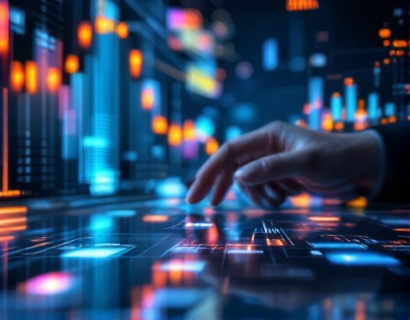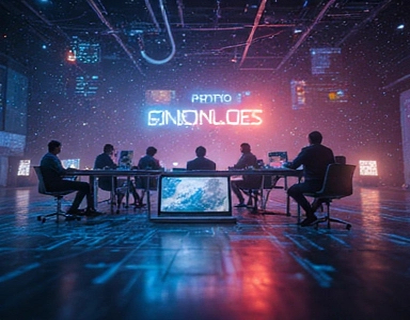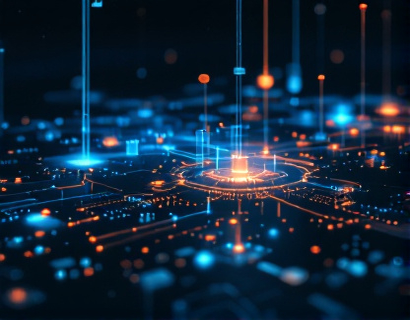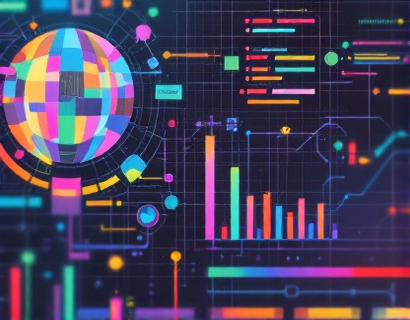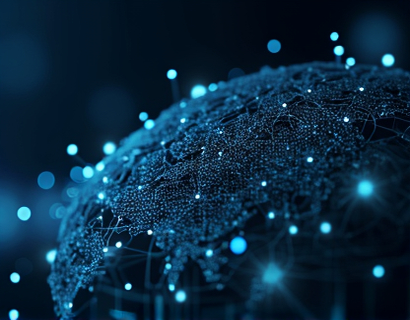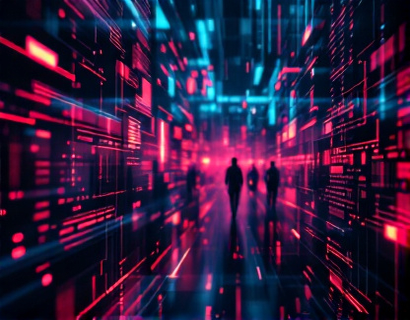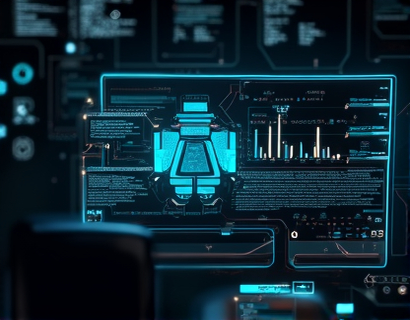Elevating Digital Productivity: The Synergy of AI and Cryptocurrency
The digital age has ushered in a new era of technological advancements, where artificial intelligence (AI) and cryptocurrency are at the forefront of innovation. This article delves into the transformative impact of these technologies on productivity, exploring how their fusion is redefining workflows and enhancing efficiency for tech enthusiasts and early adopters. By examining the intersection of AI and cryptocurrency, we uncover the potential for next-generation solutions that streamline tasks, secure transactions, and foster a more connected digital ecosystem.
Understanding AI and Cryptocurrency
Artificial intelligence, a branch of computer science, focuses on creating systems that can perform tasks requiring human intelligence, such as learning, reasoning, and problem-solving. AI technologies include machine learning, natural language processing, and computer vision, which are increasingly integrated into various industries to automate processes and provide insights from data.
Cryptocurrency, on the other hand, is a digital or virtual currency that uses cryptography for security and operates on a decentralized network, typically a blockchain. Bitcoin, launched in 2009, was the first and most well-known cryptocurrency, but thousands of others have since emerged, each with unique features and use cases. The decentralized nature of cryptocurrency ensures transparency, security, and reduced reliance on traditional financial institutions.
AI in Cryptocurrency: Enhancing Security and Efficiency
The integration of AI into cryptocurrency systems has significantly improved security and operational efficiency. AI algorithms can detect and prevent fraudulent activities by analyzing patterns and identifying anomalies in transaction data. This proactive approach to security helps protect users and maintain the integrity of the blockchain network.
Moreover, AI optimizes the performance of cryptocurrency exchanges and wallets. By predicting market trends and optimizing trading strategies, AI can help investors make more informed decisions. Smart contracts, self-executing contracts with the terms directly written into code, leverage AI to automate and enforce contractual obligations, reducing the need for intermediaries and lowering transaction costs.
Cryptocurrency as a Medium for AI Development
The decentralized and secure nature of cryptocurrency provides a robust foundation for AI development and deployment. Blockchain technology ensures that AI models and data are tamper-proof and accessible to a wide range of developers and researchers. This openness accelerates innovation, as developers can build upon existing AI models and datasets, fostering a collaborative environment.
Furthermore, cryptocurrency facilitates the monetization of AI-driven services and applications. Developers can tokenize their AI models, allowing users to pay for access or usage through cryptocurrency. This model not only provides a new revenue stream but also aligns the interests of developers and users, as both benefit from the value created by AI technologies.
AI-Powered Crypto Assets: Tokenization and Beyond
Tokenization, the process of converting assets into digital tokens on a blockchain, is a key area where AI and cryptocurrency intersect. AI can enhance tokenization by providing sophisticated valuation models and risk assessments, ensuring that tokens represent assets accurately and fairly. This is particularly useful in real estate, art, and other complex asset classes.
Beyond tokenization, AI-driven crypto assets, such as decentralized finance (DeFi) protocols and non-fungible tokens (NFTs), are redefining ownership and value in the digital world. AI can optimize DeFi platforms by automating lending, borrowing, and yield farming processes, making financial services more accessible and efficient. NFTs, powered by AI, can represent unique digital items, from art to virtual real estate, creating new markets and opportunities for creators and collectors.
Enhancing Productivity with AI and Cryptocurrency
The combination of AI and cryptocurrency offers powerful tools to enhance productivity across various domains. For instance, AI-driven project management platforms can utilize blockchain to ensure transparency and accountability in task assignments and progress tracking. Smart contracts can automate milestones and payments, reducing administrative overhead and ensuring that projects stay on track.
In the realm of data analysis, AI can process and interpret large datasets, providing actionable insights that drive decision-making. Cryptocurrency can facilitate the secure and private sharing of these insights, ensuring that sensitive information remains protected while still being accessible to authorized parties. This synergy is particularly valuable in industries like finance, healthcare, and supply chain management, where data integrity and security are paramount.
Case Studies: Real-World Applications
Several real-world applications demonstrate the potential of AI and cryptocurrency in enhancing productivity. For example, a supply chain management system uses AI to predict demand and optimize inventory levels, while blockchain ensures that each transaction is recorded transparently and immutably. This reduces delays and errors, leading to more efficient operations and cost savings.
In the creative industry, AI-powered tools generate unique digital art and music, which can be sold as NFTs. The use of cryptocurrency in these transactions ensures that artists receive fair compensation, and collectors can verify the authenticity and ownership of digital assets. This model not only supports creators but also opens new revenue streams for artists and artists-in-residence programs.
Challenges and Considerations
Despite the numerous benefits, the integration of AI and cryptocurrency also presents challenges. Regulatory uncertainties and the volatile nature of cryptocurrency markets can pose risks to businesses and individuals. Ensuring compliance with regulations and managing the volatility of crypto assets are critical considerations for adopting these technologies.
Additionally, the technical complexity of AI and blockchain requires a skilled workforce capable of developing, maintaining, and scaling these systems. Education and training programs are essential to build a competent workforce that can harness the full potential of AI and cryptocurrency.
Future Prospects: The Next Frontier
The future of AI and cryptocurrency is promising, with ongoing research and development poised to unlock new possibilities. Quantum computing, for instance, has the potential to revolutionize AI by solving complex problems at unprecedented speeds. When combined with blockchain, quantum computing could enhance the security and efficiency of AI-driven systems, opening up new frontiers in data processing and machine learning.
Moreover, the convergence of AI, cryptocurrency, and the Internet of Things (IoT) is set to create a more interconnected and intelligent world. Smart devices powered by AI can generate and transact data using cryptocurrency, creating a seamless and autonomous ecosystem. This integration will further enhance productivity, making tasks more efficient and reducing the need for human intervention.
In conclusion, the fusion of AI and cryptocurrency is transforming the digital landscape, offering innovative solutions that elevate productivity and streamline workflows. As these technologies continue to evolve, they will play an increasingly vital role in shaping the future of work and commerce. Tech enthusiasts and early adopters stand to benefit greatly from embracing these next-generation innovations.













